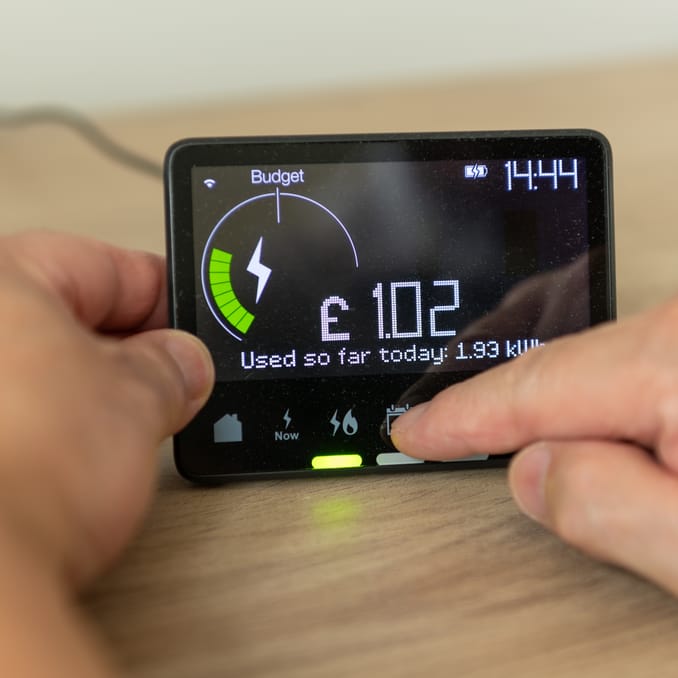How Much Does It Cost to Run a Dishwasher?

Understanding the costs associated with running a dishwasher can be crucial for effective budgeting and energy management in your household. With the rise of energy prices, knowing how appliances impact your utility bills is key.
In this article, we’ll provide you with a comprehensive breakdown of the costs linked to running a dishwasher, including energy consumption, water usage, and additional expenses such as detergents and salts. We’ll also equip you with practical tips for reducing these costs and optimising your dishwasher's use.
Breakdown of Dishwasher Running Costs
To gain a clearer picture of your dishwasher's operating expenses, it's essential to consider the various components contributing to the total cost.

Energy costs
The average dishwasher consumes between 1.2 to 1.5 kWh per cycle. This can vary based on the model, the wash cycle selected, and how full the dishwasher is. The lower the kWh number, the less energy the appliance consumes. In the UK, the average electricity rate from 1st October to 31st December 2024 is 24.5 pence per kWh. Therefore, if we take an average consumption of 1.35 kWh, the energy cost per cycle would be approximately 33 pence.

Water costs
Several Beko water-saving dishwashers use as little as 9.5 litres of water, with a maximum of 14 litres. With the average cost of water in the UK being around 2 pence per litre, running a dishwasher will typically cost you between 20 to 30 pence per cycle for water. It’s essential to note that the exact amount can vary based on your water supplier and local rates.

Additional costs
Beyond energy and water, there are other recurring expenses to consider:
- Detergents: The cost of dishwasher detergent can vary widely, but a typical box or bottle costs around £6.42 as of August 2024 and lasts for approximately 30 washes, translating to about 21 pence per cycle.
- Dishwasher salts: Necessary for models with built-in water softeners, a bag of dishwasher salt can cost about £3 and typically lasts for about 20 washes, or roughly 15 pence per cycle.
- Maintenance: Regular maintenance, such as cleaning filters and checking for blockages, is vital to keep your dishwasher running efficiently.
When you add these costs together, a single dishwasher cycle can cost approximately £1.00 to £1.10, factoring in energy, water, detergent, and salt.
Factors Influencing Dishwasher Running Costs
Several factors affect the overall running costs of your dishwasher, and understanding these can help you make informed decisions about usage and appliance selection.
Dishwasher size and efficiency
Different dishwasher sizes (slimline or full size) consume varying amounts of energy and water. Slimline models may use less water but often have a higher per-litre energy cost due to their efficiency ratings. In contrast, full size models tend to be more economical when fully loaded.
Age and model
The efficiency of dishwashers has greatly improved with technological advancements, making modern models significantly more energy- and water-efficient compared to older ones. Upgrading to a newer dishwasher can result in substantial long-term savings. For instance, the latest Beko Dishwasher with Heat Pump Technology is A Energy Rated, using only 9.9 litres of water to clean up to 15 place settings. Its Heat Pump technology reduces energy consumption by up to 20% compared to other A-rated dishwashers. Additionally, many Beko dishwashers are equipped with a Half Load function, which can cut energy and water usage by 10–15%, providing even greater efficiency for smaller loads.
Usage patterns
Your dishwashing habits have a significant impact on running costs. To lower energy consumption of your dishwasher, aim to run your dishwasher only when it’s fully loaded. If you need to start a cycle before the appliance is full, use the Half Load function to save energy and water on smaller loads. Additionally, choosing the Eco Cycle, which is the most energy and water efficient programme, can further reduce water and energy usage, all while maintaining excellent cleaning performance.
Cost Comparison: Old vs. New Dishwashers
The differences between older dishwashers and modern, energy-efficient models can be substantial in terms of both energy and water savings. The extent of these savings will depend on the specifications of your current dishwasher and the new model you choose.
When shopping for a new dishwasher, prioritise the energy efficiency rating, appliances with higher energy classes are more efficient and cost-effective to run. Beko offers an exceptional range of A-rated dishwashers, designed to deliver significant energy savings.
Additionally, pay close attention to the dishwasher's water consumption. Opting for a model with lower water usage can further reduce your utility bills while saving water.
Tips to Reduce Dishwasher Running Costs
If you're looking to cut costs while still enjoying the convenience of a dishwasher, here are some practical tips:
- Use the Eco Cycle: The Eco programme is the most energy-efficient option on your dishwasher. It optimises water and energy usage, helping you save money. While these cycles may take longer, they are designed for maximum efficiency without compromising cleaning results.
- Optimise load size: Always aim to run full loads instead of multiple smaller ones. This maximises the efficiency of each wash, reducing both energy and water costs. If you need to run a smaller load, use the Half Load function to minimise energy and water usage.
- Regular maintenance: Keep your dishwasher running efficiently by maintaining it regularly. Clean the filter, check for blockages, and run cleaning cycles to prevent buildup and ensure optimal performance and longevity.
Why Investing in an Energy-Efficient Dishwasher Pays Off
Upgrading to an energy-efficient dishwasher can lead to significant savings on your utility bills. Modern dishwashers, such as Beko's A-rated models, are designed to use less energy and water than older appliances, thanks to advancements like Heat Pump technology and Eco Cycles. These innovations can reduce energy consumption by up to 20% and optimise water usage, making them highly cost-effective. Features like the Half Load function provide even greater flexibility, allowing you to save on smaller loads. By investing in a newer, more efficient model, you can enjoy lower running costs while maintaining excellent cleaning performance.
FAQs
How much does it cost to run a dishwasher for an hour?
The average cost to run a dishwasher for an hour can vary, but generally, you might expect to spend around 50 pence to £1 based on energy consumption and the specific cycle used.
What factors influence the cost of running a dishwasher?
Factors include energy efficiency ratings, size and model of the dishwasher, water usage per cycle, and your specific washing habits.
How can I reduce my dishwasher's energy consumption?
You can reduce energy consumption by using the Eco Cycle, running full loads, and maintaining the appliance regularly to ensure it operates efficiently.
Are newer dishwashers more cost-effective?
Yes, newer dishwashers tend to be significantly more cost-effective than older models due to improved energy efficiency and water-saving technologies.
By understanding the costs associated with running a dishwasher and taking steps to optimise its use, you can enjoy the convenience of this appliance while keeping your expenses in check. Whether you’re considering a new purchase or looking to improve your current setup, these insights can help you make informed choices for your home. For more in-depth reviews and buying guides, check out our resources linked throughout this post.
For more guidance on what type of dishwasher to get, check out our buying guide or explore our range of explore our range of dishwashers.
Did we answer your question?
We are so sorry we were unable to answer your question. You might be able to find the answer you are looking for in the ‘Related Questions’ below. If your query is still unanswered, please head over to our Contact Us page for further assistance.
Search FAQ’s
Search or browse our frequently asked questions to find the answer to your query.




